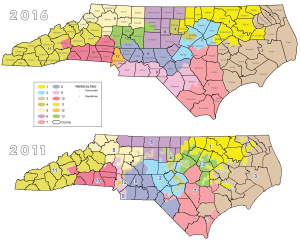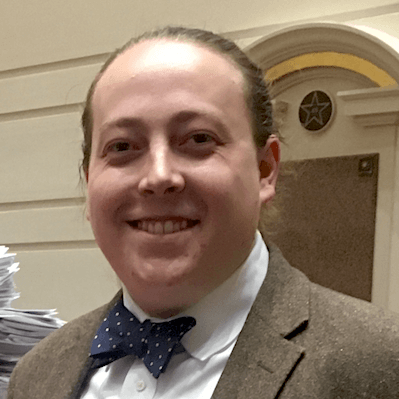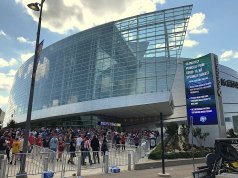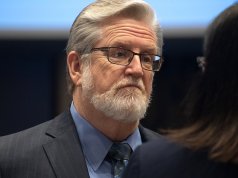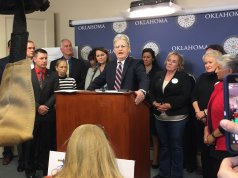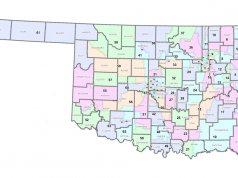
The purpose of establishing a representative democracy in the United States was to allow citizens across the country to be represented fairly in the government.
But for that to be the case, representational districts must be drawn in a nonpartisan manner. According a report this week by the Associated Press, districts that have been drawn since the 2010 census have overwhelmingly been gerrymandered to increase Republican control in state legislatures and the U.S. Congress.
From the AP:
Traditional battlegrounds such as Michigan, North Carolina, Pennsylvania, Wisconsin, Florida and Virginia were among those with significant Republican advantages in their U.S. or state House races. All had districts drawn by Republicans after the last Census in 2010.
The AP analysis also found that Republicans won as many as 22 additional U.S. House seats over what would have been expected based on the average vote share in congressional districts across the country. That helped provide the GOP with a comfortable majority over Democrats instead of a narrow one.
A leading cause of this is due to the surge in voter turnout for the GOP following the Great Recession and the election of Barack Obama. The formation of the Tea Party movement spurred grassroots change in the Republican Party, running campaigns calling for less government intervention into the economy and lower taxes. The Republicans began to take hold of state legislatures all over the country.
Owing to those increasingly Republican legislatures, the task of redistricting fell into the hands of the GOP.
Packing populations
Redrawing congressional districts is a necessary requirement within our democracy as the official population increases following each decade’s census. But there have long been ways to draw the lines so that one party is favored over another. By “packing” large populations of the opposing party’s voter blocs together, fewer seats are ultimately close and contested.
RELATED
North Carolina gerrymandering bastardizes primary by Kelsey Kemp
Another way to gerrymander — named for Massachusetts Gov. Elbridge Gerry and a dubiously voting tract in the state circa 1812 — is to “crack” districts by spreading the opposing party out amongst majority held districts, which makes it more difficult for the opposition to win seats.
According to the AP, former Michigan state Rep. Lisa Brown was forced out of her seat by redrawn district lines. She alleges the Republican leadership approached her with two possible maps showing her district. One would keep her in the same district, while the other would move her into a more Republican-heavy district. She claims she was given an ultimatum to either vote with the GOP or be moved into a new district. She elected to turn down their offer and subsequently lost her seat in the House.
“I was gerrymandered out of my district,” Brown said.
While claims of gerrymandering are often brought up in courts, one ongoing scenario could have major ramifications.
In a potential landmark case, the U.S. Supreme Court has agreed to hear an appeal to a lower court’s ruling that district lines in Wisconsin were unconstitutional and the result of partisan gerrymandering in favor of the GOP.
The SCOTUS has avoided defining how much partisan redistricting is too much in the eyes of the law for years, but a ruling in favor of the lower court in Wisconsin could have drastic effects on legislatures across the United States.
Fair elections are a hallmark of democracy, and without them the U.S. is at risk of becoming a flawed democracy. The issue should be taken seriously.









